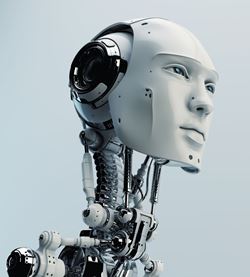Dyson is moving beyond robotic-floor based vacuums and developing new robot prototypes designed to carry out household chores and other tasks.
The company has released a video that showcases Dyson-designed robotic hands grasping objects.
The technology giant aims to have the technology in homes by the end of the decade.
As part of the development of the tech, Dyson has said it is looking for experts in the field of robotics. It plans to recruit 250 robot engineers across a number of areas, including: computer vision; machine learning; sensors; and mechatronics.
Over the next five years, it expects to hire 700 employees in the robotics field.
“Dyson employed its first roboticist 20 years ago and this year alone we are seeking 250 more experts for our team,” said Jake Dyson, chief engineer at Dyson, who is leading on the research. “This is a ‘big bet’ on future robotic technology that will drive research across the whole of Dyson, in areas including mechanical engineering, vision systems, machine learning and energy storage. We need the very best people in the world to come and join us now.”
Dyson is already mid-way through the biggest engineering recruitment drive in the company’s history.
In 2022 alone, 2,000 new employees have joined the business – half of which are engineers, scientists, and coders.
Dyson said its “master plan” is to create UK's largest and most advanced robotics centre at Hullavington Airfield.
Latest News
-
MedTech data should represent entire population when training AI, says Department of Health director
-
ICO launches investigation into X’s Grok after reports of harmful sexualised imagery
-
OpenAI seeks chip alternatives as Nvidia's $100bn investment stalls over performance concerns
-
SpaceX acquires xAI in $1.25tn merger ahead of planned stock market flotation
-
Starling Bank turns to software sales to fuel US expansion
-
Snapchat bans 415,000 under-16 accounts in Australia
The future-ready CFO: Driving strategic growth and innovation
This National Technology News webinar sponsored by Sage will explore how CFOs can leverage their unique blend of financial acumen, technological savvy, and strategic mindset to foster cross-functional collaboration and shape overall company direction. Attendees will gain insights into breaking down operational silos, aligning goals across departments like IT, operations, HR, and marketing, and utilising technology to enable real-time data sharing and visibility.
The corporate roadmap to payment excellence: Keeping pace with emerging trends to maximise growth opportunities
In today's rapidly evolving finance and accounting landscape, one of the biggest challenges organisations face is attracting and retaining top talent. As automation and AI revolutionise the profession, finance teams require new skillsets centred on analysis, collaboration, and strategic thinking to drive sustainable competitive advantage.
© 2019 Perspective Publishing Privacy & Cookies









Recent Stories